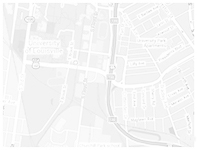Growth of Micro Internships
GROWTH OF MICRO-INTERNSHIPS
By Stuart Esrock, Ph.D.
Many students know the benefits of an internship. They provide students with practical experience to apply what has been learned in the classroom. Internships also give students an opportunity to network, find out first-hand what a particular field is really like (as opposed to hearing about it in the classroom), and they let students test out whether that type of position is really something they want to do. But during difficult economic times like a COVID-19 economy, a traditional internship could be difficult to find. Stepping into the void increasingly is something referred to as a “micro-internship.”
Micro-internships are project-based positions that involve a much smaller time commitment than the traditional internship. Positions typically center on short-term projects requiring 5 to 40 hours of work that would be given to a new hire or intern, and students receive a fixed fee for their work. Most project deadlines range from one week to one month. Micro-internship projects include sales/lead generation, content development and data entry for just a few examples. It’s an opportunity for students to gain important, real-world experience and get paid at the same time.
The director of UofL’s University Career Center, Bill Fletcher, said micro-internships are not a new concept. “Micro-internships have been around for a few years but the pandemic has moved it to the forefront of career issues as the vast majority of these projects are completed remotely. Thus, students in Louisville could complete micro-internships with west or east coast employers while currently taking classes - opportunities they may not have otherwise been able to complete.”
The virtual nature of micro internships potentially benefits students in other ways. They provide time and geographic flexibility, which is important for some students who may lack transportation or have problems fitting a traditional internship into their academic schedule.
Beyond the benefits of a remote experience, while many students may only have one opportunity to do a traditional internship that could impact their career choices, the micro-concept can potentially open a range of options. The short-term nature of micro-internships allows students to explore a wide variety of potential career directions by executing multiple projects.
The micro-internship can provide a needed, quality alternative to a traditional internship. Fletcher said the reality is some students simply encounter circumstances that don’t allow them to do a traditional internship. “Online students who may have a full-time job, military students, student athletes, and adult learners, most of whom have other time commitments, can't take the time off to complete regular internships.” Traditional internships may also not be possible because of, for example, a student’s economic or life situation, an inability to relocate, or a lack of social capital/networking connections. In all of these situations, at the very least a student can gain some level of practical experience with a micro-internship.
Some schools have started micro-internship-like programs. Northeastern University has a program called the “Experience Network,” in which students work on projects for employers from six to eight weeks. And on the west coast, Stanford University has a summer program in which students work on a series of projects for employers.
Nationally, a company called Parker Dewey has come to the forefront as a clearinghouse for micro-internships. The company maintains a website on which students register and create accounts. Employers post positions on the website and pay rates. When students complete a micro-internship, payment comes from Parker Dewey, which keeps a 10% fee from the employer.
Bottom line is that it appears there will be more micro-internship and project work available to students in the future. Bill Fletcher of the University Career Center thinks not only can that help a student’s professional development, it could also serve as a bridge to more intensive real-world experiences before entering the job market. “Micro-internships are great for students to prepare for full semester internships and to supplement in building skills to fill in around internships.
For more information on Parker Dewey and its micro-internship program, go to this link: https://www.parkerdewey.com/career-launchers.

